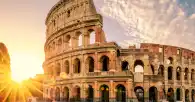Cheap Europe Flights
Europe Countries
 Aland Islands
Aland Islands Albania
Albania Andorra
Andorra Armenia
Armenia Austria
Austria Azerbaijan
Azerbaijan Belarus
Belarus Belgium
Belgium Bosnia and Herzegovina
Bosnia and Herzegovina Bulgaria
Bulgaria Crimea
Crimea Croatia
Croatia Cyprus
Cyprus Czechia
Czechia Denmark
Denmark Estonia
Estonia Faroe Islands
Faroe Islands Finland
Finland France
France Georgia
Georgia Germany
Germany Gibraltar
Gibraltar Greece
Greece Guernsey
Guernsey Hungary
Hungary Iceland
Iceland Ireland
Ireland Isle of Man
Isle of Man Italy
Italy Jersey
Jersey Kazakhstan
Kazakhstan Kosovo
Kosovo Latvia
Latvia Liechtenstein
Liechtenstein Lithuania
Lithuania Luxembourg
Luxembourg Malta
Malta Moldova
Moldova Monaco
Monaco Montenegro
Montenegro Netherlands
Netherlands North Cyprus
North Cyprus North Macedonia
North Macedonia Norway
Norway Poland
Poland Portugal
Portugal Romania
Romania Russia
Russia San Marino
San Marino Serbia
Serbia Slovakia
Slovakia Slovenia
Slovenia Spain
Spain Svalbard and Jan Mayen
Svalbard and Jan Mayen Sweden
Sweden Switzerland
Switzerland Turkey
Turkey Ukraine
Ukraine United Kingdom
United Kingdom Vatican City
Vatican CityAbout Europe
The European continent is the smallest continent in the world, but it has a rich history and cultural heritage. Covering an area of approximately 10.18 million km², Europe is home to about 11% of the world's population.
European history dates back to ancient times. It has been influential in the spread of important religions, such as Christianity, in addition to great civilizations such as Greece and the Roman Empire. The Renaissance and Enlightenment periods were important times of development in science, art, literature, and philosophy in Europe.
The geography of Europe is quite diverse. The Arctic Ocean and the Northern Lights to the north, the Atlantic Ocean to the west, the Ural Mountains and the Black Sea to the east, and the Mediterranean and the Alps to the south. This geographical diversity allows for different climates and vegetation to exist on the continent.
The population of Europe is relatively low compared to other regions of the world. However, the continent still has a dense population and many different ethnic groups and languages are spoken. Due to its culture, history, and geographical location, European culture is followed with interest by many people around the world.
Europe also holds an important place in world tourism. Countries such as France, Italy, Spain, the United Kingdom, and Germany are among the most visited places by tourists. Historical cities, museums, architecture, delicious cuisine, and luxury shopping areas are factors that attract tourists' attention.
Europe also has an important role in art and culture. Many important artists, such as writers, musicians, painters, and philosophers, have emerged from Europe. Europe's artistic and cultural heritage is renowned worldwide.
The European economy plays an important role in the world economy. The European Union is an economic and political union consisting of 28 member countries and is one of the world's largest trading blocs.
Popular Airlines Flying to Europe
 Ajet
Ajet Azimut
Azimut Pegasus Airlines
Pegasus Airlines Sichuan Airlines
Sichuan Airlines Turkish Airlines
Turkish Airlines Wizz Air UK
Wizz Air UK EasyJet
EasyJet Ryanair
Ryanair Ryanair UK
Ryanair UK Mokulele Airlines
Mokulele Airlines Transavia
Transavia Wizz Air
Wizz Air Wizz Air Malta
Wizz Air Malta














